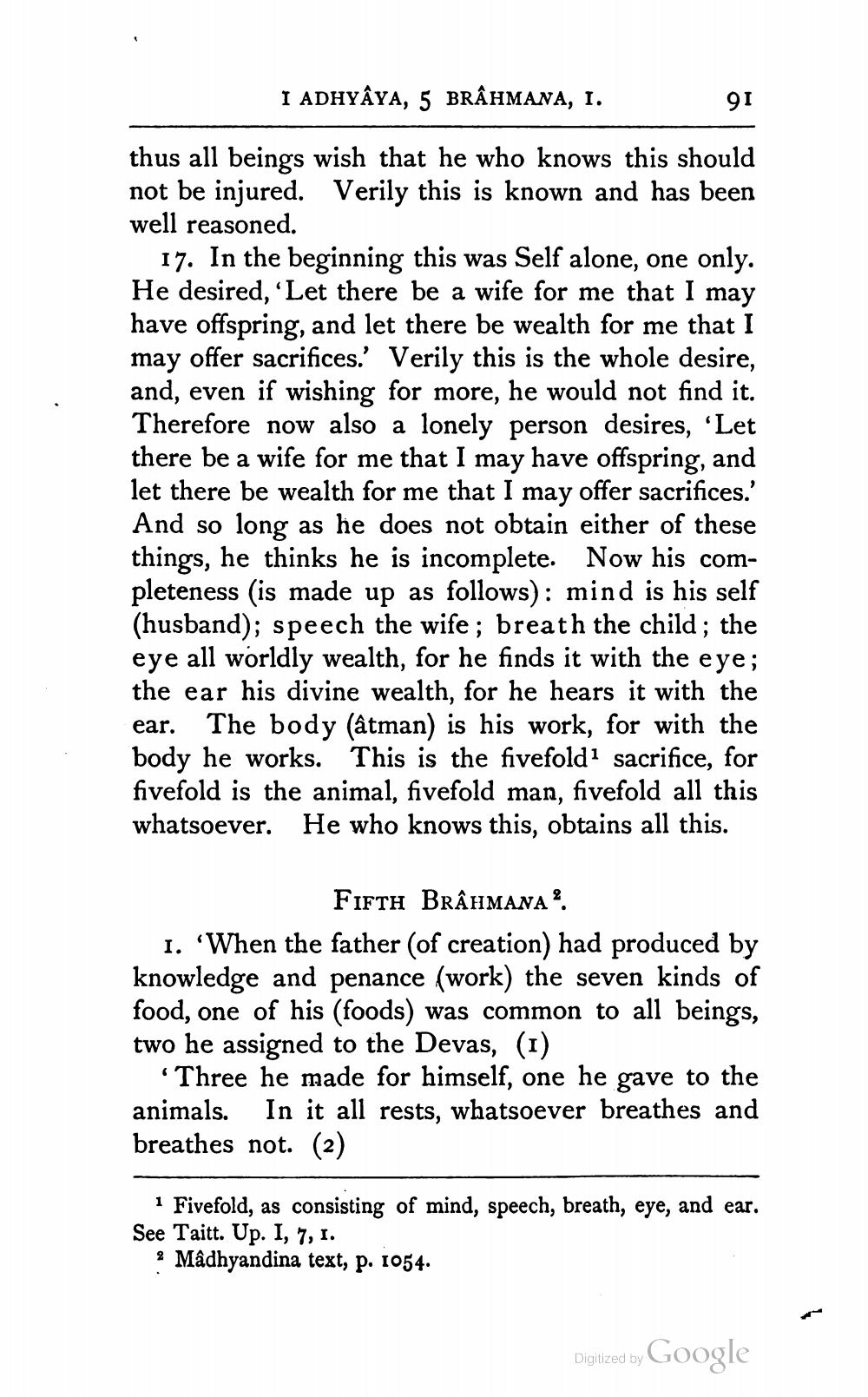________________
I ADHYÂYA, 5 BRÂHMANA, 1.
91
thus all beings wish that he who knows this should not be injured. Verily this is known and has been well reasoned.
17. In the beginning this was Self alone, one only. He desired, 'Let there be a wife for me that I may have offspring, and let there be wealth for me that I may offer sacrifices.' Verily this is the whole desire, and, even if wishing for more, he would not find it. Therefore now also a lonely person desires, 'Let there be a wife for me that I may have offspring, and let there be wealth for me that I may offer sacrifices.' And so long as he does not obtain either of these things, he thinks he is incomplete. Now his completeness (is made up as follows): mind is his self (husband); speech the wife ; breath the child; the eye all worldly wealth, for he finds it with the eye; the ear his divine wealth, for he hears it with the ear. The body (âtman) is his work, for with the body he works. This is the fivefoldi sacrifice, for fivefold is the animal, fivefold man, fivefold all this whatsoever. He who knows this, obtains all this.
Fifth BRÂHMANA? 1. 'When the father (of creation) had produced by knowledge and penance (work) the seven kinds of food, one of his (foods) was common to all beings, two he assigned to the Devas, (I)
*Three he made for himself, one he gave to the animals. In it all rests, whatsoever breathes and breathes not. (2)
1 Fivefold, as consisting of mind, speech, breath, eye, and ear. See Taitt. Up. I, 7, 1.
? Mâdhyandina text, p. 1054.
Digitized by Google




